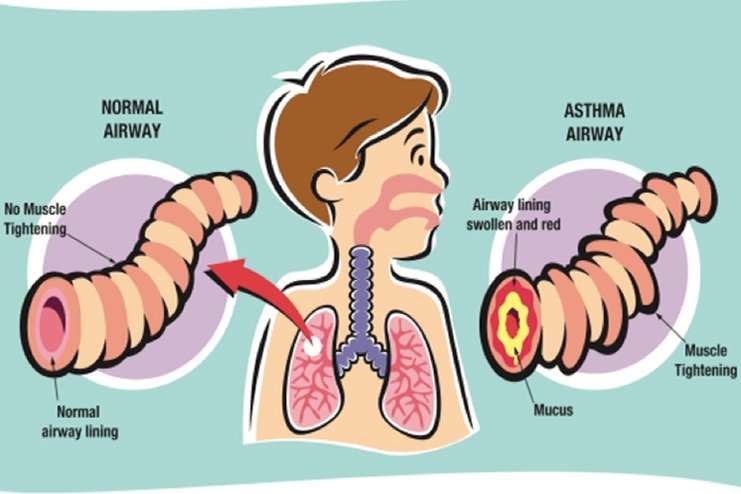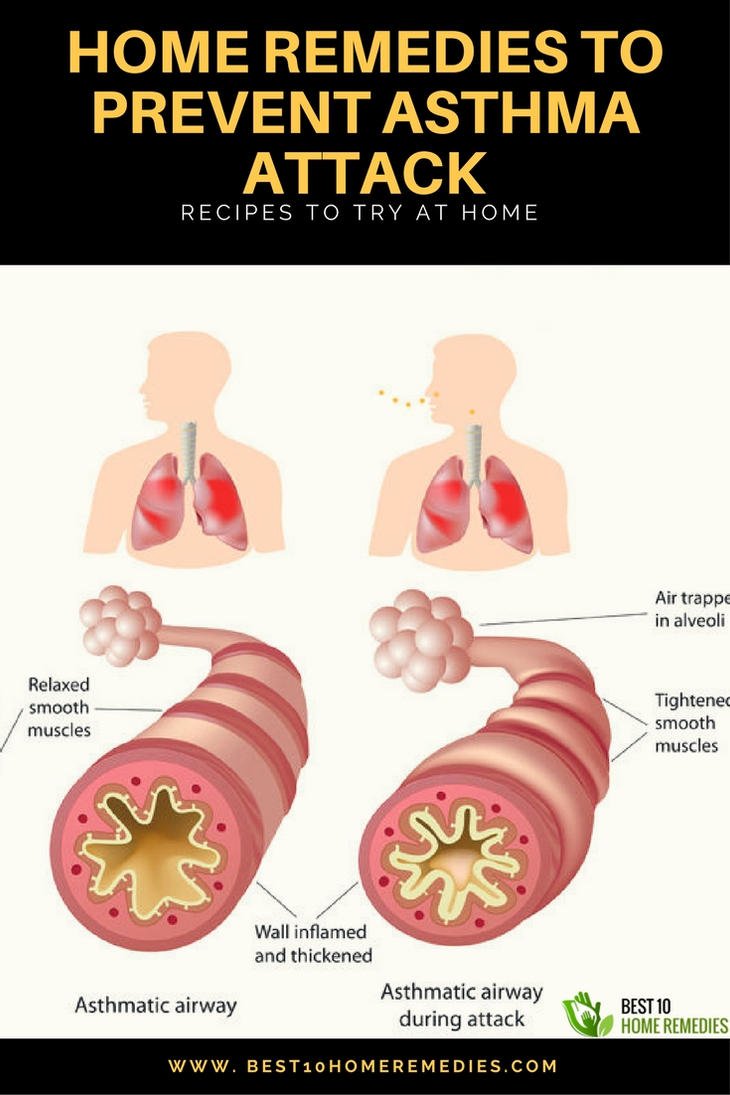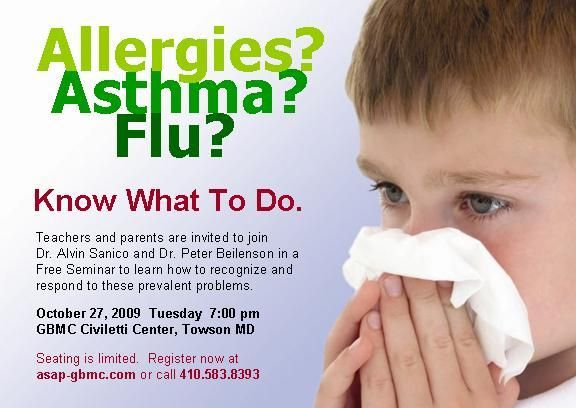Why Do People Get Asthma
Research has yet to show a definitive cause of asthma. However, researchers have determined several risk factors that can lead to asthma development.
Family History and Genetics
Children of mothers with asthma are three times more likely to suffer from asthma, and 2.5 times more likely if the father has asthma. More than 30 genes have been linked to asthma so far, and gene-gene interactions, gene-environment interactions and epigenetic modifications also play a part. Genetic differences also play a role in differences in response to treatment.
Allergies
People are more likely to have asthma if they have certain types of allergies, such ones which can affect the eyes and nose. However, not everyone who has allergies will get asthma and not everyone who has asthma is affected by allergies. Respiratory allergies and some types of asthma are related to an antibody called immunoglobulin E , which the immune system produces in response to allergens. To protect the body, the IgE causes allergic reactions that can affect the eyes, nose, throat, lungs and skin.
Premature Birth
Children born before 37 weeks are at increased risk of developing asthma later in life.
Lung Infections
Babies or small children may be at risk of developing asthma later in life if they had certain lung infections at a very early age.
Occupational Exposures
Hormones
Women can develop adult-onset asthma during or after menopause.
Environment Air Quality
Obesity
How Do You Get Asthma
Asthma is a chronic respiratory disease caused by inflammation of the airways. Common symptoms are wheezing, coughing, shortness of breath and chest tightness. Asthma is believed to be caused by a combination of environmental and genetic factors. Although you cannot control your genetic makeup, you can control some of the environmental factors that may cause you to develop asthma.
Asthma triggers include:
- Allergens
- Chemical fumes
- Air pollution
- Workplace exposures
- Obesity
Medical studies on the prevalence of asthma have identified some interesting patterns. The strongest risk factor for developing asthma is a history of atopic disease . This increases the risk of both hay fever and asthma.
In children between 3-14, a positive skin test for allergies and an increase in immunoglobulin E increases the chance of having asthma. In adults, the more allergens reacted to during a skin test, the higher the odds of having asthma.
Other patterns that increase the risk of developing asthma include:
- Maternal smoking during and after pregnancy
- Antibiotic use early in life
- Presence of cockroaches in the home
You might be wondering about the reference above to obesity. It is thought that respiratory function decreases due to the buildup of adipose tissue and the fact that fat supports the development of inflammation in the body.7 A study in Taiwan actually correlated asthma symptoms with each 20% increase in body mass index . This should encourage all of us to maintain a healthy weight!
How To Get Rid Of An Asthma Cough
Cough variant asthma is one of the most persistent types of asthma in which patient is subjected to periodic attacks of a cough or wheezing. A cough occurs as a reaction to some material. In a cough variant asthma, the inner lining of airways becomes very sensitive that it reacts very rapidly to materials and as a result patient suffers from an asthma cough. To get rid of an asthma cough, researchers suggest prevention be the best strategy. A person suffering from a cough variant asthma should identify the situations and elements which trigger periodic coughing, and one should avoid such situations as much as possible. Common situations for triggering the coughing are listed as follows:
- Allergens present outside e.g. pollen from trees, weeds and grass
- Food essences
- Flu or illness
- Air pollution
Anyhow, if your asthma continue to persist or you dont feel any significant reduction in your asthma cough, visiting your allergist becomes vital. You allergist will undergo a thorough check-up of yours and will determine the cause along with prescribing you with a cure. Normally, asthma medications provided by the medical allergist include:
- Bronchodilator Inhaler
- Corticosteroid Inhaler
- Anti-inflammatory Agents
- Herbs e.g. gingko and ivy
- Acupuncture
- Hypnosis
Read Also: What’s An Asthma Attack Feel Like
Personal Asthma Action Plan
As part of your initial assessment, you should be encouraged to draw up a personal asthma action plan with your GP or asthma nurse.
If you’ve been admitted to hospital because of an asthma attack, you should be offered an action plan before you go home.
The action plan should include information about your asthma medicines, and will help you recognise when your symptoms are getting worse and what steps to take. You should also be given information about what to do if you have an asthma attack.
Your personal asthma action plan should be reviewed with your GP or asthma nurse at least once a year, or more frequently if your symptoms are severe.
As part of your asthma plan, you may be given a peak flow meter. This will give you another way of monitoring your asthma, rather than relying only on symptoms, so you can recognise deterioration earlier and take appropriate steps.
Want to know more?
Exposure To Triggers At Work

Occupational asthma is a type of asthma caused by certain things found in the workplace, such as chemicals or dust from flour or wood.
If you havent had asthma before and then get it because of the work you do, and if your symptoms improve when youre not at work, you probably have occupational asthma.
Occupational asthma is a common cause of adult onset asthma.
Recommended Reading: Steroids For Bronchitis Side Effects
How To Get Rid Of Asthma Without Inhaler
If you are an asthma patient, and you need an inhaler to escape from asthma but just in case you have forgotten your inhaler and you are under attack. What is it that you are going to do now? How will you get rid of asthma without an inhaler? The upcoming discussion will help you fight this situation.
As a first stage, determine your stage of attack that is start thinking about your symptoms. If you are having symptoms such as you cant stop coughing, your fingernails or your lips turning blue, feeling of tightness around your ribs, feeling of exhaustion for the struggle of breathing, you are in a serious state and need medical assistant badly. Anyhow, adopting the following scenarios will give you time until medical assistance arrives.
What Causes Asthma In Infants And Toddlers
We still do not know what causes some people to get asthma. If a child has a family history of asthma or allergies, a specific allergy or had a mother who smoked during pregnancy, they have a higher chance of getting asthma early in life.
A respiratory virus, an illness that occurs in the lungs, is one of the most common causes of asthma symptoms in children 5 years old and younger. Although both adults and children experience respiratory infections, children have more of them. Some preschool children get viral infections often. At least half of children with asthma show some sign of it before the age of 5. Viruses are the most common cause of acute asthma episodes in infants 6 months old or younger.
Read Also: Ibuprofen For Asthma
Spacers For Asthma Medication
It is recommended that all people with asthma, regardless of age, use a spacer when taking medication via a metered-dose inhaler .
Spacers help to improve the delivery of asthma medication to the lungs and minimise side effects from medications. Talk to your doctor or pharmacist about spacers and how they might help you manage your asthma.
which demonstrate how to use a puffer and spacer.
Also Check: Does Pot Help Asthma
Vaping And Lung Damage
- Talk with your teen about the dangers of vaping.
- Vaping can cause severe lung damage. It can become permanent.
- Vaping can even cause death .
- Vaping tobacco also causes nicotine addiction.
- For these reasons, the legal age to purchase vaping products is 21 in the US.
- Encourage your teen to not start vaping or to give it up.
- Warning: home-made or street-purchased vaping solutions are the most dangerous.
You May Like: Homemade Salt Inhaler
Asthma Can Cause Short
Asthma complications that develop over the short run, include:
Problems Engaging in Normal Daily Activities According to David Rosenstreich, MD, chief of the division of allergy and immunology at the Albert Einstein College of Medicine in New York City, symptoms of asthma like coughing, wheezing, and shortness of breath may prevent you from attending work or school, impacting your productivity.
Asthma symptoms may also interfere with sleep or prevent you from exercising or engaging in other leisure or social activities. Disengagement from all of these activities can affect your overall health and increase your risk for conditions like heart disease and diabetes.
People who have poorly controlled asthma, either because of failure to adhere to treatment or because asthma is difficult to control with treatment, are more likely to experience work and overall activity impairments than people who have asthma under control.
Severe Asthma Attacks Up to 10 percent of people who have asthma may have whats termed severe asthma. For these people, asthma symptoms occur daily and are often difficult to control, says Patricia Takach, MD, an associate professor of clinical medicine in the Section of Allergy and Immunology at the University of Pennsylvanias Perelman School of Medicine in Philadelphia.
Some severe asthma attacks may require a trip to the emergency room or require hospitalization. Seek immediate medical attention if your symptoms are not responding to your usual treatment.
Asthma Symptoms In Adults
Shortness of breath that occurs when you are performing a simple exercise such as walking to the mailbox or climbing the stairs: If its an everyday occurrence, the symptom is known as dyspnea on exertion. It shouldnt be confused with shortness of breath following an illness or strenuous exercise.
A persistent cough from asthma is a dry cough that occurs in response to asthma triggers such as a cold, allergies or smoke. The cough is more likely to happen at night. Chest tightness and cold symptoms that hang in the chest for an extended period of time are also sometimes symptoms of asthma.
Wheezing or a whistling sound when you exhale is another asthma symptom. Having difficulty breathing is a common complaint from many asthma patients.
Factors that affect adult-onset asthma include:
- Exposure to environmental elements either at work or home that cause allergy-like symptoms
- Medical history of allergies
- Living now or in the past in a smoking household
- Family history of asthma
You May Like: What To Do During Asthma Attack Without Inhaler
Don’t Miss: Does Weight Gain Make Asthma Worse
Breathing Problems During Exercise
If you have chest tightness, cough, wheeze or shortness of breath during exercise, your doctor may perform extra tests to see if you have a type of asthma called, exercise-induced asthma or exercise-induced bronchospasm. For some people, they will only have asthma symptoms during exercise. There are many benefits to exercise, so work with your doctor to find the best management steps and treatment options for you.
There Are Many Different Types Of Asthma Brought On By Many Different Triggers

If youre struggling with asthma symptoms trouble breathing, a persistent cough or tightness in the chest an allergist can help you take control by providing a diagnosis and identifying the underlying causes.
Learn about the triggers and treatment for allergic asthma and how an allergist can help you manage allergy and asthma symptoms.
Recommended Reading: Does Weight Gain Make Asthma Worse
Which Children Are At Risk For Asthma
Certain factors raise the risk of asthma in children:
- Being exposed to secondhand smoke when their mother is pregnant with them or when they are small children
- Genetics and family history. Children are more likely to have asthma if one of their parents has it, especially if its the mother.
- Race or ethnicity. Black and African Americans and Puerto Ricans are at higher risk of asthma than people of other races or ethnicities.
- Having other medical conditions such as allergies and obesity
- Often having viral respiratory infections as young children
- Sex. In children, asthma is more common in boys. In teens, it is more common in girls.
What Are The Symptoms
Asthma can be different for everyone. Asthma symptoms can also vary over time, with few or no symptoms when asthma is well controlled. The common signs and symptoms of poorly controlled asthma include:
- Shortness of breath
- Trouble sleeping because of breathing difficulty
- Being unable to take part in physical activities without breathing difficulty
These symptoms can occur slowly over hours or days, or they can come on as sudden, recurring attacks after which the symptoms can persist for some time before disappearing. If left untreated, asthma can cause permanent structural changes in your airways called airway remodelling, which is why it is important to get your asthma under control and keep treating it over the long term.
You May Like: Asthma And Overweight
Drugs And Food Additives
Beta blockers, which often are prescribed for high blood pressure, glaucoma, migraine headaches and angina, can cause bronchospasm, an airway tightening. Patients with asthma should consult their allergist about the use of these medications.
Food additives rarely trigger asthma. The most common food trigger for asthma is sulfite, a preservative used in such products as frozen potatoes and some beers and wines.
What Can I Do To Manage My Childs Asthma
When a baby or toddler has a chronic illness, parents can feel stressed to their limits. Here are some coping tips:
- Learn the warning signs for increasing asthma in infants and toddlers. Know your childs particular asthma symptom pattern.
- Develop an asthma care plan with your childs doctor. Make sure the plan has a course of action to follow if asthma symptoms get worse. Understand when your child needs emergency care.
- Follow your child’s Asthma Action Plan every day! Dont change the plan until you consult your health care provider. Even if your childs symptoms are gone, stick with the plan until you discuss changes with the doctor.
- Teach your toddler or preschooler to tell you when they are not feeling well.
- Work out an emergency plan of action to follow if your child has a serious asthma episode. What hospital will you use? Who will take care of your other children? How does your medical coverage provide for emergency care?
Also Check: Really Bad Asthma
Side Effects Of Asthma Medication
If you are worried about possible side effects from asthma medication, speak to your doctor. Do not stop or reduce doses of medication for your child without speaking with your doctor. Common side effects from inhaled asthma medication:
Preventers
- sore mouth and throat
- fungal throat infections.
Using a spacer reduces the risk of these side effects. as does rinsing the mouth with water after using an inhaler.
Relievers
- fast heart beat.
Symptoms Of Asthma Emergencies In Children
The signs of an asthma emergency include when the child:
- finds it very difficult to breathe or is not breathing
- is unable to speak comfortably or complete sentences without losing breath
- has lips turn blue
- has symptoms that get worse very quickly
- has tugging in of the skin between ribs or at the base of the neck
- is getting little or no relief from their reliever inhaler, or their reliever inhaler is not available.
Don’t Miss: Is Asthma Worse At Night
How Can You Detect Asthma
Here are a few of the common symptoms that people experience when they have asthma: Shortness of breath Wheezing Chest tightness Trouble breathing when lying down Coughing Problems when exercising Phlegm Feeling tired and fatigued Sometimes cant wake up in the morning Feeling so sleepy that you fall asleep during the day or in mid-conversation Feeling like you wont be able to wake up in the morning Feeling like you wont be able to breathe in the morning Nighttime cough Wheezing at night Heartburn Dizziness Chest pain.
Should I Use My Inhaler If I Have Covid

I am a doctor and I have practiced medicine for almost 20 years now. Covid is a viral infection that has been known to lower the immune system and one of the many things that can happen if a person has an lowered immune system is getting an infection that it would not otherwise get. Just because you have Covid does not mean you will get a cold or a flu or an infection when exposed to a virus. However, it does mean that your defense system is weakened and that you are more likely to get an infection. Thus, I always suggest my patients to avoid contact with anyone who is sick and wash your hands regularly. It is also recommended to stay away from people with symptoms like coughing, vomiting and sneezing. Stay home until your symptoms are gone. If you have a cough, cough into your elbow instead of into the air. Use your inhaler if the symptoms worsen. I hope this helps!.
You May Like: Can I Smoke Weed With Asthma
What Do The Two Types Have In Common
Exact causes of asthma can be difficult to pinpoint. Allergies and triggers in the environment can cause asthma symptoms and an asthma flare-up, and genetics can also play a role. But the exact reasons why people develop asthma remain unclear.
Childhood asthma and adult-onset asthma share many of the same triggers. For all people with asthma, exposure to one of the following triggers may cause an asthma attack, though different people have different triggers:
- smoke
